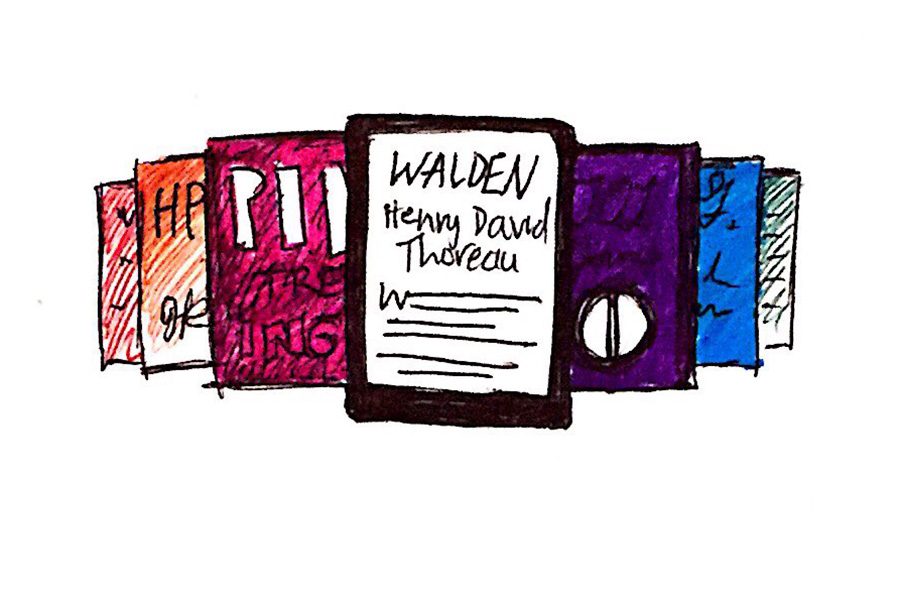The literary dispute: technology or paper?
Photo by Victoria Van
November 27, 2017
The world was forever changed on April 1, 1976. It was only after Apple Inc. was founded that the technological revolution began. Technology was rapidly expanding and becoming integrated into every aspect of life. Phones were no longer attached to walls, TVs weren’t confined to living rooms and computers were made necessities to our way of life.
The transformation from paper to digital can largely be attributed to the consumption and increase of the media. As people can easily access news, entertainment and information through screens, print media has declined in use or, in some cases, even disappeared.
The influx of technology in workplaces and curriculum is becoming more frequent in everyday life. Computers, tablets and other screens are increasingly utilized, especially in classrooms. More and more people are turning to technology for studying and learning materials. Even Texas High has recently introduced touch-screen computers and transitioned to using computer programs and apps to complete and turn in assignments, such as Google Classroom or Turnitin.com.
The easy access to school materials and homework may be convenient, but is it really helping students learn? An article by Dr. Prue Salter implies that print is actually better.
“Current evidence indicates that at this point in time print may be slightly superior to the screen in relation to comprehension, learning, retention and ease of use,” Salter said.
A study by Bangor University and Millward Brown was conducted in 2009 to assess the effects of paper and digital media on the human brain. The results showed that physical material is better received by the brain and is more likely to be committed to memory because it is more engaged with spatial memory. Physical material involves emotional processing and more brain responses and is thus more connected to internal feelings, meaning that paper material is more internalized into one’s psyche.
Furthermore, the International Journal of Educational Research tested retention of information through digital and paper sources on 72 high school sophomores. The students were divided into two, where group one had paper text and the second group had digital text that both tested on reading comprehension. The study concluded that “students who read texts in print scored significantly better on the reading comprehension tests than students who read the texts digitally.”
So even though the convenience of a smartphone textbook and the easy accessibility of information is super convenient, it isn’t really helping. Time and time again science proves the importance of paper to learning, especially as our society enters the technological revolution. So, put down the phone and pick up a cozy book and read to your heart’s content.
















